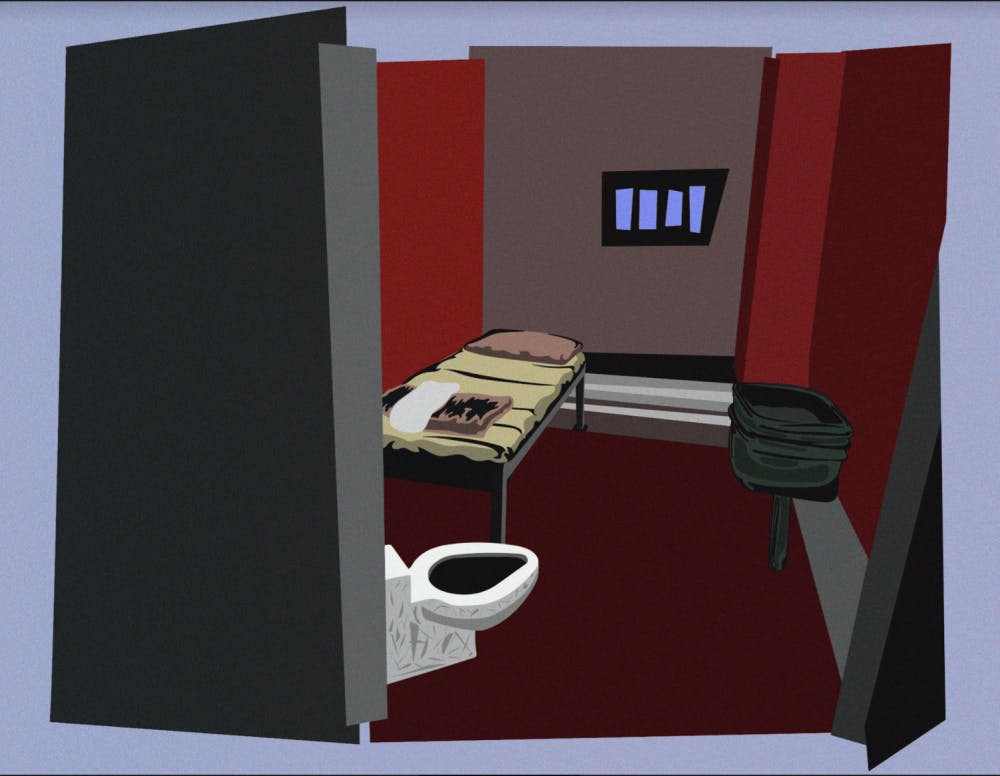Close High Side Coalition — a community alliance that includes attorneys, formerly incarcerated people, the re-entry organization Open Doors and Direct Action for Rights and Equality’s prison abolition campaign — is advocating for an end to long-term solitary confinement in the Rhode Island prison system.
The coalition proposed Senate Bill 395, also known as the Restrictive Housing Act, to State Sen. Tiara Mack ’16 last fall. On Feb. 25, Mack and nine other senators introduced the bill in the Rhode Island Senate.
If passed, the bill would limit solitary confinement sentences to no more than 15 days and require that individuals in isolation have access to educational and rehabilitative programming and a minimum of two hours outside per day. The bill would also create a system to safely transition inmates from disciplinary confinement back to the general prison population.
While the United Nations classifies solitary confinement sentences lasting longer than 15 days as torture, Rhode Island is one of a minority of states that lacks “clear jurisdiction” over the length of time a person can spend in solitary confinement, Mack said. Disciplinary confinement exacerbates the pre-existing mental health disorders pervasive among those in solitary, and frequently leads to “anxiety, depression and PTSD,” she added.
The bill was referred to the Senate Judiciary Committee pending a hearing date yet to be assigned. After the hearing, Judiciary Committee Chairwoman State Sen. Cynthia Coyne will determine when the committee will vote on the legislation, according to bill co-sponsor State Sen. Jonathon Acosta ’11 MA’16, PhD ’23. If the bill successfully passes the committee vote, it will move to a vote on the Senate floor, Acosta said.
This week, the Close High Side Coalition is discussing the bill with individual members of the Judiciary Committee to gauge their understanding of the issues it addresses and provide a space for them to offer recommendations on revisions to the bill, Open Doors spokesperson Joe Shepherd said.
Additionally, as part of a demonstration that began at 7 a.m. Wednesday morning to educate people on the experience of confinement, the Coalition is inviting volunteers to sit in a replica of a solitary confinement unit for three-hour shifts until Sunday morning, Close High Side Coalition lobbyist Haley McKee said.
“The conditions inside these facilities are, at their heart, inhumane and not built on the idea that all people can be rehabilitated,” Mack said.
Acosta added that managing segregated housing units is “extremely expensive” and does not yield “tangible results.”
He said he believes the most significant element of the bill is its introduction of a system in which mental health professionals would check in with individuals in restrictive housing and review their solitary confinement sentence so that “people aren’t perpetually stuck in solitary confinement.”
The bill also expands the presence of correctional officers to create the level of supervision necessary so that more people in solitary can be outside their cell at a time to receive programming — a provision Mack conceded she grapples with herself. While she admitted that this will give “more money to the system,” she believes that the creation of conditions where it is safe for more isolated individuals to have access to greater programming and spend time outside their cells is “a beneficial tradeoff for everyone.”
Shepherd, who is formerly incarcerated, considers Senate Bill 395 “an initial compromise for a step forward to dismantle supermax” facilities in Rhode Island.
Shepherd served a cumulative three-and-a-half years of his nearly seven-year-long prison sentence in solitary confinement, and said that the stigma attached to the disciplinary sentence effectively bars isolated prisoners from access to services as essential as healthcare.
For example, Shepherd recounted that people in need of wisdom teeth removal were ignored by nurses and doctors, so much so that they would “try to cut their eye open … their eyelid, their hands” or hurt themselves in other ways to seek immediate medical intervention as a respite from confinement.
For Acosta, a successful passage of the Restrictive Housing Act would be “a step toward making the criminal justice system more humane.”
“The prison system … hasn’t shown to be particularly effective,” he said. “We’re recognizing (now) in the U.S. that maybe we went way too f---ing far.”
According to Shepherd, Senate Bill 395 confronts just one part of a much larger problem — to solve it, he says, the Rhode Island community must “combat” the related issues of poverty, unequal opportunity, mental illness and systemic racism.
“More people need to stop being scared … and see people as human beings,” Shepherd said.
While Mack acknowledged that the bill faces obstacles in the predominantly conservative Judiciary Committee, her belief that the legislation addresses a problem that “anyone who has empathy” can appreciate is cause for optimism.
People have fought “this issue for years, and there is tons of education … to highlight the stark injustices,” Mack said. “That’s what gives me hope.”
Correction: A previous version of this article misattributed the quote, “The conditions inside these facilities are, at their heart, inhumane and not built on the idea that all people can be rehabilitated,” to McKee. In fact, the quote was said by Mack. The Herald regrets the error.

ADVERTISEMENT




